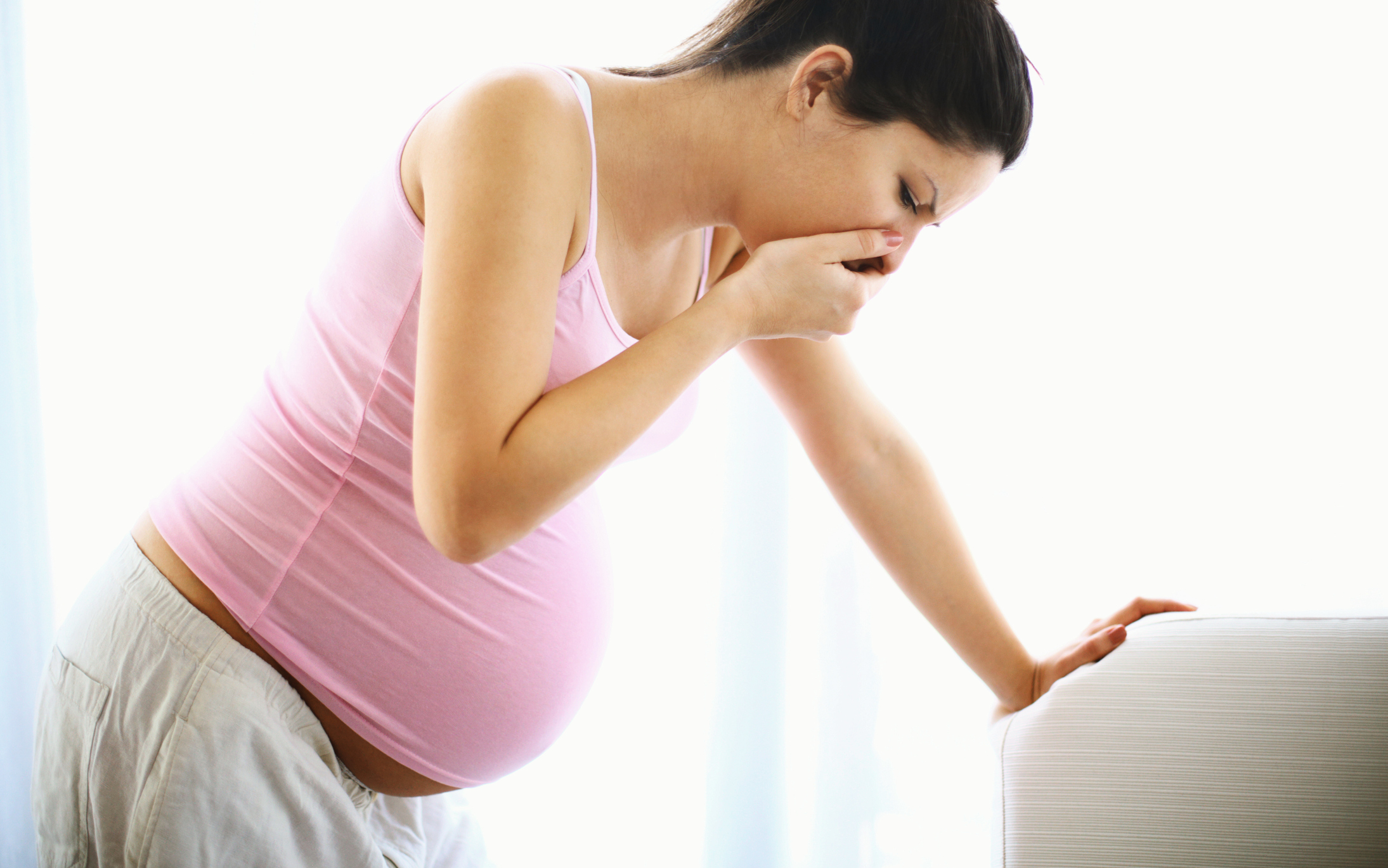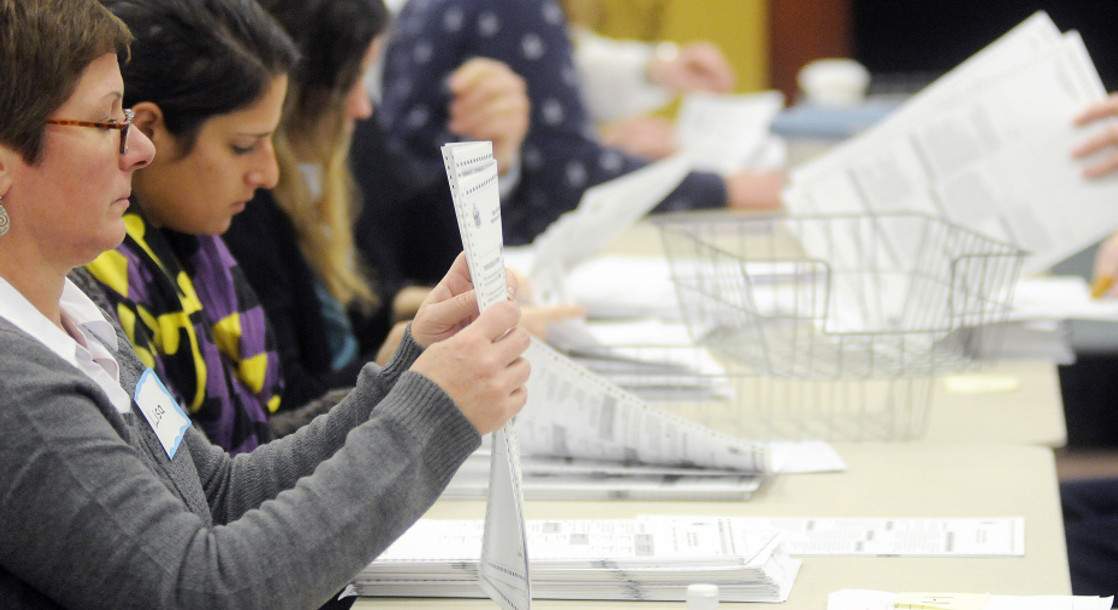Lead photo via iStock
Last June, randomly selected cannabis dispensaries in Colorado received a mystery phone call from a woman, stating that she was eight weeks pregnant and experiencing morning sickness. The caller then asked for advice from dispensary staffers about using cannabis to treat pregnancy symptoms. The results of the study, led by doctors at Denver Health and the University of Colorado School of Medicine, found that nearly 70 percent of the 400 dispensaries contacted recommended cannabis products to treat nausea in the first trimester, and that fewer than a third of dispensaries encouraged discussion of such treatments with a healthcare provider without prompting from the caller.
In response, Bob Troyer, the now-former U.S. Attorney for the District of Colorado, penned a commentary in September for the Denver Post citing large upticks in youth marijuana use, pot-related traffic fatalities, a persistent black market, and now, pregnant women seeking cannabis, as reasons why “you may start seeing U.S attorneys shift toward criminally charging licensed marijuana businesses and their investors. After all, a U.S. attorney is responsible for public safety.”

Dispensaries in Colorado are under scrutiny for recommending cannabis to pregnant women; photo via iStock
Up to 80 percent of women experience morning sickness, a condition that causes nausea and vomiting, typically in the first trimester of pregnancy. Morning sickness can also take a very severe form called hyperemesis gravidarum. Characterized by severe nausea, vomiting throughout the day, weight loss, and electrolyte disturbance, some cases may require hospitalization and IV treatment to replenish nutrients and fluids in order to keep both mother and child safe.
Are the results of Colorado’s recent study cause for alarm and increased governmental oversight, or another pretext for federal officials to prosecute state-legal marijuana businesses under the guise of protecting women’s health?
Pregnant women are strongly cautioned to consult their doctors before taking drugs of any kind, whether it be acetaminophen or antacids, simply because the long-term effects of taking medicine on the fetus are unknown.
This leaves pregnant women between a rock and a hard place. The Drug and Therapeutics Bulletin reports that about one in ten pregnant women have a chronic medical condition that requires medication throughout their pregnancy. But even in the realm of pharmaceuticals, there is no conclusive drug safety information for pregnant women to rely on, leading some women to forego taking medicine completely, which could cause even more harm to mother and child.
“It’s a very personal decision [to use cannabis during pregnancy],” says Dr. Perry Solomon, a board-certified anesthesiologist and Chief Medical Officer for HelloMD, an online cannabis community connecting individuals to medical advice from trained professionals. “That’s not to say that something will happen to the children. It is just [a question of] what chance are you willing to take, and [if you’re willing to accept] the advice of a budtender, who may or may not have done research as valid as the advice of an obstetrician who can talk to you in an informed way, and they’re not selling the thing.”
Kelley Bruce, the co-founder and executive director of CannaMommy, a nonprofit dedicated to mothers and families who choose to use natural medicines like cannabis, would generally object to pregnant women consulting their physicians about cannabis consumption. “Doctors are required by insurance [companies] to report Schedule I drug use,” explains Bruce. “So, of course, [pregnant women] won’t talk to their care provider. “
Bruce believes that pregnant women who use cannabis are among the most vulnerable to law enforcement and child protective services (CPS), a lesson learned the hard way from personal experience. Badly injured by a drunk driver while a single mom in 2010, she received her medical marijuana card in Colorado to treat pain stemming from back and neck injuries.
Being outspoken about the benefits of medicinal cannabis found her in the crosshairs of CPS in 2012 for endangerment due to consuming a Schedule I illicit substance in front of a child. For this infraction, Bruce was put on two years of probation, after which all charges were dropped. In 2015, pregnant with her second child, Bruce was diagnosed with hyperemesis gravidarum, the more extreme form of morning sickness that can be debilitating to a mother and dangerous for an unborn child.
Despite the legal problems she had previously encountered, Bruce used medicinal cannabis once again to help ease her severe nausea and keep food down. And she is certainly not alone. Jennifer [last name withheld to protect her identity], a mother of three living in Utah, smoked cannabis through all of her pregnancies to calm nausea that kept her from eating and helped stave off weight loss. However, she felt comfortable sharing her cannabis consumption with her doctors, who proved sympathetic. “I didn’t trust the medicine Big Pharma wants us to take, and [my doctor] told me there were no known birth defects from marijuana. He was not telling me to smoke, but he was not telling me stop either, if that makes sense.”

Mothers have reported using marijuana to treat pregnancy-induced nausea; photo via iStock
Women like Jennifer and Kelley Bruce aren’t alone — a 2017 study by Kaiser Permanente in California found significant rises in pot use during pregnancy from 2009 to present, particularly among younger women, illustrating that for a segment of pregnant women, the benefits of cannabis still outweigh possible risks.
Dr. Solomon, however, still believes it is irresponsible to recommend cannabis to pregnant women. “There is no organization, nobody, that would endorse using any type of cannabis while pregnant,” he explains. “Eighty percent of budtenders recommending cannabis means one of two things: they are uninformed about the effects, or they are there to sell product.”
In the wake of the June report from Denver Health, the Colorado Department of Revenue released a bulletin, reminding marijuana-industry stakeholders about labeling requirements that must be affixed to packaging or marketing of both adult-use and medical cannabis. Labels must clearly state that “there may be long term physical or mental health risks from use of marijuana, including additional risks for women who are or may become pregnant or are breastfeeding.”
The Colorado Department of Revenue’s Marijuana Communications Specialist, Shannon Gray, emphasized in an email to MERRY JANE that, “The division will investigate reports and evidence of attempts to circumvent statutory and rule requirements,” and, “Making health or benefit claims to consumers communicating information that is prohibited from being advertised or displayed on labels…may be viewed by the Division as an attempt to evade marketing, advertising, and/or labeling requirements, resulting in recommendation for administrative action.”
The Department of Revenue’s guidelines to recommend administrative sanctions are a far stretch from criminally prosecuting dispensaries and their investors, as federal attorney Troyer suggested. Morgan Fox, Media Relations Director for the National Cannabis Industry Association (NCIA), is firmly against criminal penalties for dispensary employees, believing that it boils down to issues of free speech, but he also says that companies should strictly follow state regulations. “Pregnant women should consult with their doctor, not a budtender,” says Fox. “Consumers [in general] shouldn’t be looking for medical advice from budtenders.”
At Vicente Sederberg, a marijuana law firm with offices across the U.S., founding partner Brian Vicente says that the only way for dispensaries to stay clear of law enforcement and liability — still not a guarantee since marijuana continues to be federally illegal — is to, as written by Vicente to MERRY JANE in all caps, “TRAIN YOUR DISPENSARY STAFF TO NEVER GIVE OUT MEDICAL ADVICE.” He adds that not only is it unprofessional for staff to give medical advice, they lack adequate training to advise on health issues. Highlighting that cannabis use has risks, he says, “Those risks (including the risk of law enforcement and child service questioning as well as health outcomes) may be greater for those expecting a child.”
Fox at NCIA says there should certainly be more research on this issue, and that as an organization, they are going to be working on more training for cannabis industry workers, specifically around the recent Colorado study, but also other cannabis-related matters.
There has been one major study tracking human subjects that consumed cannabis while pregnant. The positive outcomes of the pregnancies are often pointed to as evidence that using cannabis while pregnant is safe. The ethnographic research, conducted in Jamaica in the early 1990s, focused on the newborns of 24 rural Jamaican women in a heavy marijuana-using population, and compared them with 20 neonates in the same community who had not been exposed to cannabis in utero.
Researchers concluded that there were no significant differences between exposed and non-exposed neonates three days after birth. In fact, at one month, the infants who had been exposed to cannabis showed better physiological stability, better scores on autonomic stability, quality of alertness, irritability, and self-regulation.

Research on the effects of cannabis use during pregnancy has been inconclusive; photo via iStock
In more recent research, "Maternal Marijuana Use and Adverse Neonatal Outcomes,” reported on observational studies compiled over several years that compared adverse developmental outcomes in women who used cannabis during pregnancy, and those who did not. Researchers concluded that “maternal marijuana use during pregnancy is not an independent risk factor for adverse neonatal outcomes after adjusting for confounding factors.”
However, there are plenty of other studies claiming risks associated with consuming pot during pregnancy. “It really comes down to, what is the responsibility of the mother to an unborn child?” Solomon says. “It’s not an easy answer, and the last thing you want to do is dictate what a mother should do while she’s pregnant, but she should be aware that the results of using cannabis with pregnancy is unknown, so why take a risk if there is an alternative that’s safer?”
As Vicente pointed out, the risks of law enforcement may be greater for cannabis-consuming women expecting a child. MERRY JANE reached out to the office of the new U.S. Attorney for Colorado, Jason Dunn, to ascertain whether they’re intending to follow up on Troyer’s threat to investigate dispensary owners and investors who sell marijuana to pregnant women. Public affairs spokesman Jeff Dorschner responded that, “U.S. Attorney Jason R. Dunn is in the process of reviewing past policy on multiple matters to determine his enforcement priorities. At this point there is nothing I can report in this regard.”
So for dispensary owners interacting with pregnant women, the risks could be higher than they already are. But for now, it is wait-and-see.











